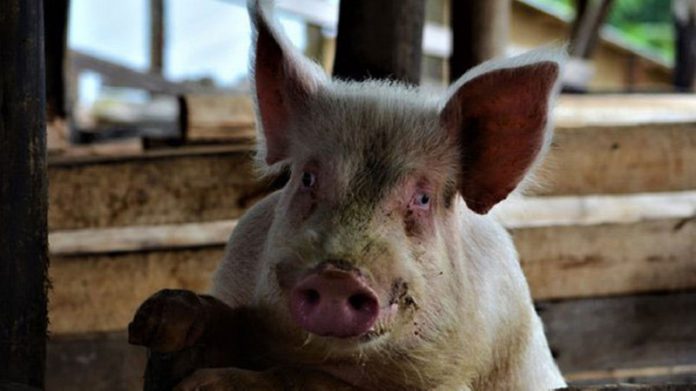Ugandan MPs have been told that the drug authorities have known for years that anti-retroviral drugs for the treatment of HIV/Aids have been fed to livestock.
The parliamentary committee on HIV/Aids has been investigating a university study about how animals in the East African nation are being given drugs to treat some illnesses and also to fatten them up.
Amos Atumanya, the senior inspector at the National Drug Authority (NDA), told MPs on Wednesday an investigation was carried out after alerts from members of the public in 2014.
It found ARVs had been given to pigs and chickens, but its report was not publicised.
“There were some concerns that if we blow it out of proportion, what would this mean for the economy in terms of if we are going to be exporting food as a country? So we were trying to find other means in which we could manage that situation,” he said.
Their report established that the ARVs were mainly used to treat African swine fever, a disease affecting pigs for which there is currently no cure. It also verified claims that the drugs were being used to treat Newcastle Disease in chickens.
The World Organisation for Animal Health describes Newcastle Disease as a highly contagious and often severe disease found worldwide that affects birds including domestic poultry.

The more recent study submitted to the parliamentary committee last week by Makerere University’s College of Health quoted people saying that pigs fed with ARVs grew faster and fatter and tended to fall ill less often.
It reported that 33.3% of chicken tissue and 50% of pig meat tested from markets in the capital, Kampala, and the northern city of Lira had contained ARV residues.
There is concern that eating such food could lead to drug resistance for those that need to take ARVs as well as jeopardising funding from donors who provide the drugs to treat HIV and Aids.
The parliamentary session has prompted outrage on social media, with people angered by the fact that the NDA did not publicise their earlier findings.
In response the NDA’s spokesperson has sought to play down the scandal, saying it had launched several operations to curb drug misuse, especially in animals.
“The ongoing operations… have led to several arrests and prosecution of the culprits,” Abiaz Rwamiri said.


